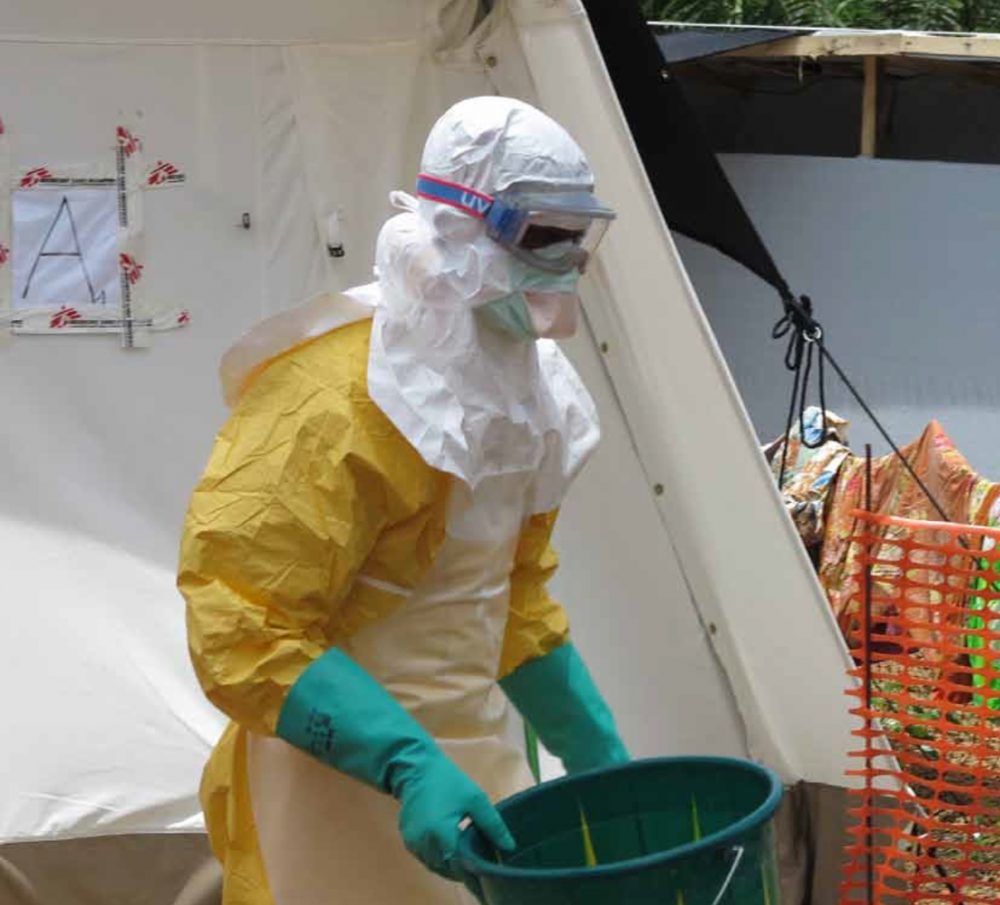Ebola virus disease
Ebola virus disease (formerly known as Ebola haemorrhagic fever) is a severe, often fatal illness, with a death rate of up to 90% caused by Ebola virus, a member of the filovirus family.
The Ebola virus can cause severe viral haemorrhagic fever (Ebola HF) outbreaks in humans with a case fatality rate of up to 90%. There are four main subtypes of Ebola virus in the African Region: Bundibugyo, Ivory Coast, Sudan and Zaire. The Bundibugyo, Sudan and Zaire species have all been associated with large Ebola HF outbreaks in the Region.
The Ebola virus causes an acute, serious illness which is often fatal if untreated. Ebola virus disease (EVD) first appeared in 1976 in 2 simultaneous outbreaks, one in what is now, Nzara, South Sudan, and the other in Yambuku, Democratic Republic of Congo. The latter occurred in a village near the Ebola River, from which the disease takes its name.
The 2014–2016 outbreak in West Africa was the largest and most complex Ebola outbreak since the virus was first discovered in 1976. There were more cases and deaths in this outbreak than all others combined. It also spread between countries, starting in Guinea then moving across land borders to Sierra Leone and Liberia.
The virus family Filoviridae includes three genera: Cuevavirus, Marburgvirus, and Ebolavirus. Within the genus Ebolavirus, five species have been identified: Zaire, Bundibugyo, Sudan, Reston and Taï Forest. The first three, Bundibugyo ebolavirus, Zaire ebolavirus, and Sudan ebolavirus have been associated with large outbreaks in Africa. The virus causing the 2014–2016 West African outbreak belongs to the Zaire ebolavirus species
Symptoms of Ebola
A person infected with Ebola virus will typically develop:
- a high temperature (fever)
- a headache
- joint and muscle pain
- a sore throat
- severe muscle weakness
These symptoms start suddenly between 2 and 21 days after becoming infected.
Diarrhoea, vomiting, a rash, stomach pain and reduced kidney and liver function can follow. The person may then bleed internally, and may also bleed from the ears, eyes, nose or mouth.
How Ebola virus is spread
The Ebola virus is spread in the blood, body fluids or organs of a person or animal with the infection.
For example, it can be spread by:
- directly touching the body of someone with the infection who has symptoms or recently died – the virus can survive for several days outside the body
- cleaning up body fluids (blood, stools, urine or vomit) or touching the soiled clothing of an infected person
- handling unsterilised needles or medical equipment used in the care of the infected person
- having sex with an infected person without using a condom – studies show traces of Ebola may remain in a man’s semen many months after he has recovered
- handling or eating raw or undercooked “bushmeat”
Ebola can’t be caught through routine social contact, such as shaking hands, with people who don’t have symptoms.
Treatment for Ebola
There’s currently no licensed treatment or vaccine for Ebola, although potential new vaccines and drug therapies are being developed and tested.
Any area affected by an outbreak should be immediately quarantined, and people confirmed to have the infection should be treated in isolation in intensive care.
Dehydration is common, so fluids may be given directly into a vein. Blood oxygen levels and blood pressure also need to be maintained at the right level, and body organs supported while the person’s body fights the infection.
Healthcare workers need to avoid contact with the bodily fluids of their infected patients by taking strict precautions, such as wearing protective equipment.
Ebola virus disease is sometimes fatal. The sooner a person is given care, the better the chance they’ll survive.
Preventing Ebola
The Ebola outbreak in west Africa is now over. The risk of catching the infection is very small.
It’s still a good idea to follow these simple precautions to minimise your risk of picking up potentially serious infections:
- wash your hands frequently using soap and water – use alcohol hand rubs when soap isn’t available
- make sure fruit and vegetables are properly washed and peeled before you eat them
- avoid physical contact with anyone who has possible symptoms of an infection
- don’t handle dead animals or their raw meat
- don’t eat “bushmeat”


